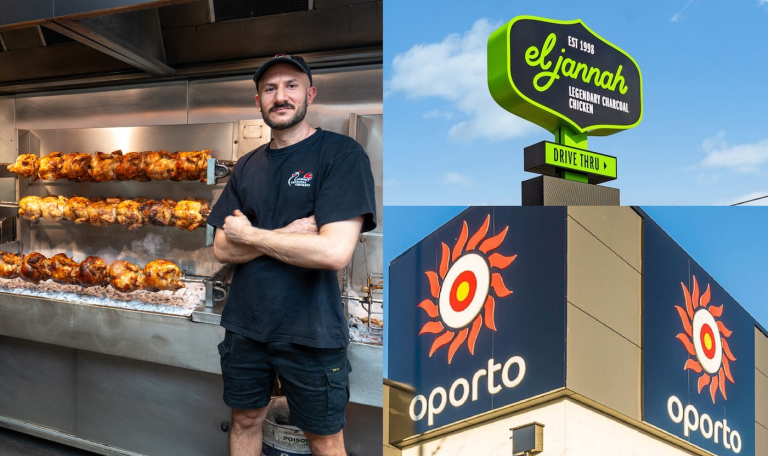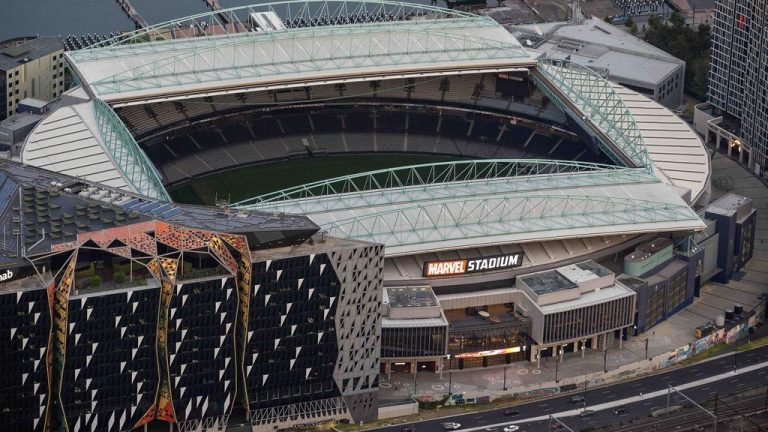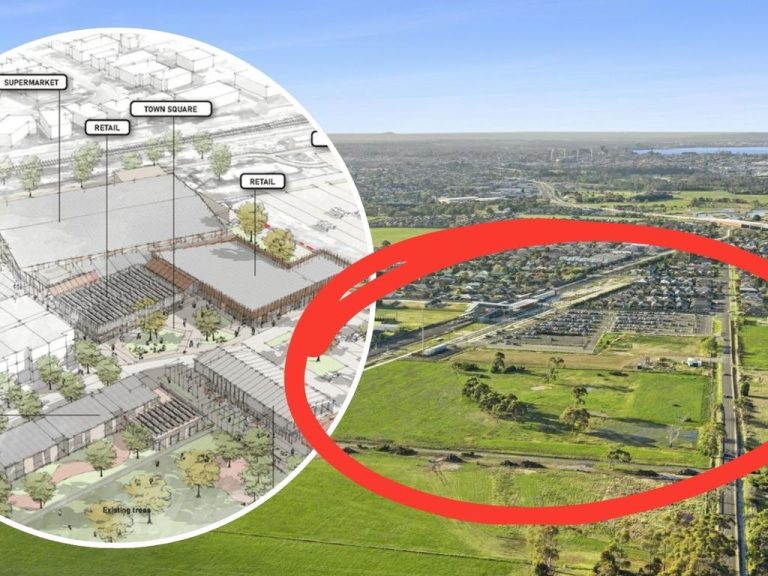What it takes to make it in Australia’s booming craft brewery industry
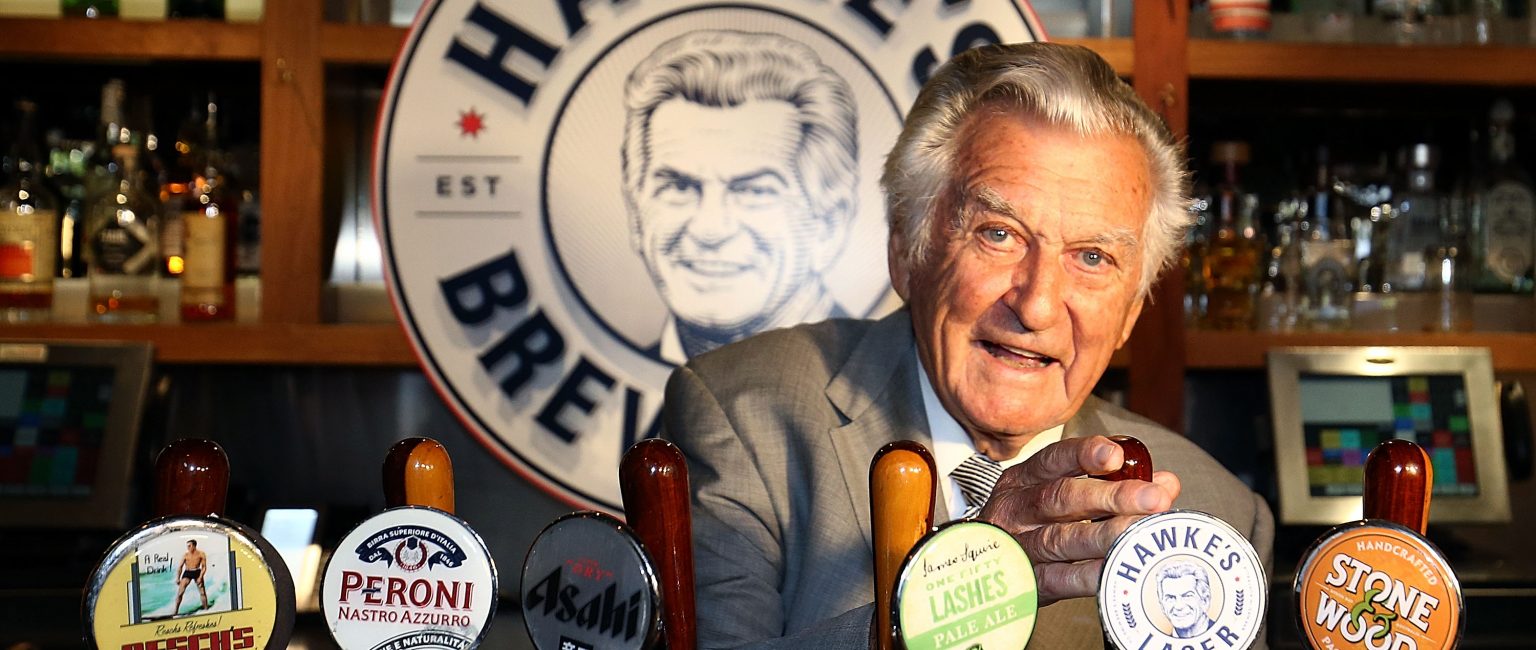
If it’s beginning to feel like craft breweries are popping up everywhere, it’s probably because they are.
Australia’s craft beer scene has exploded in recent years, with the industry experiencing a 200% growth in production and sale across the country over the last decade.
According to brewing industry news source, Brews News, there are 686 breweries currently operating nationwide.
“There are also around 40 to 50 new breweries in planning,” explained the publication’s founder and publisher, Matt Kirkegaard.
“And those numbers don’t account for the innumerable number of contract-made craft beer brands on the market.”
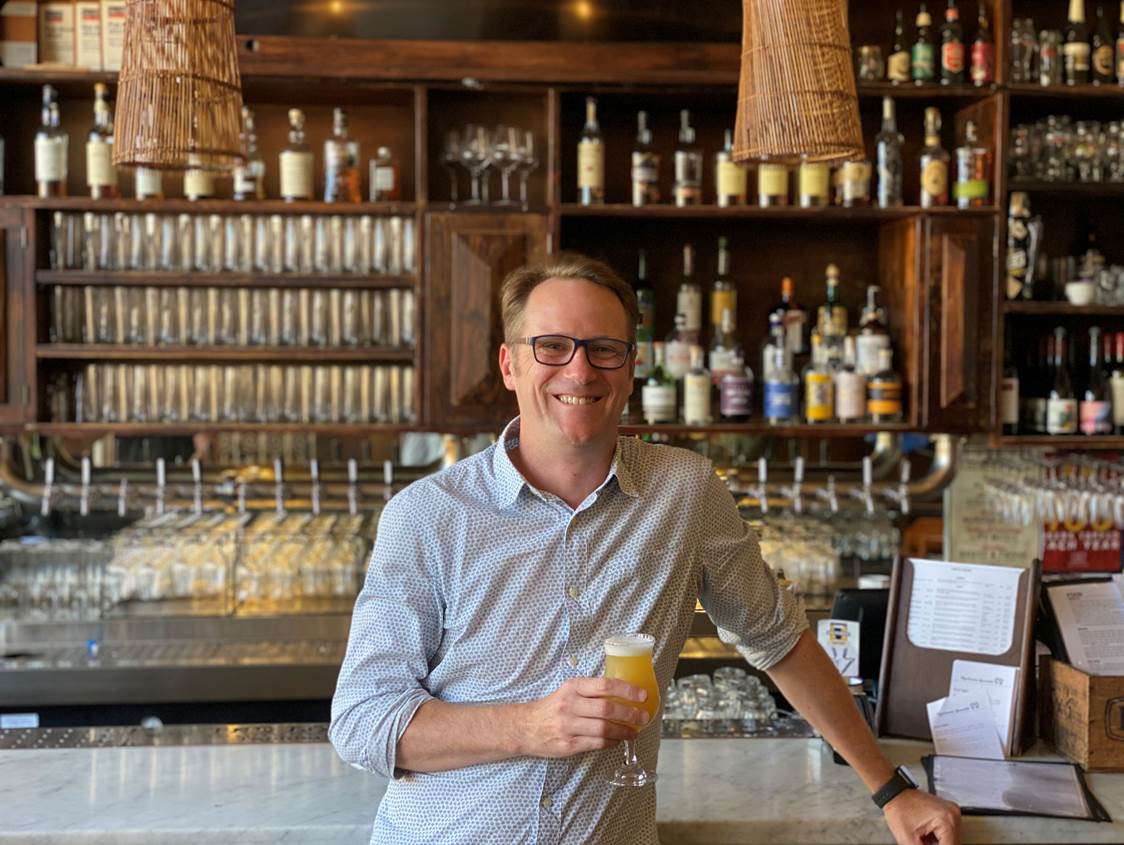
Matt Kirkegaard is the founder and editor of Australian Brews News. Picture: Supplied
As with any boom industry, this explosive growth has led to fierce competition in the marketplace.
“We’re definitely witnessing a crowding of the industry, which for consumers is exciting, but it makes it a bit tougher for the players,” said Mr Kirkegaard. “But people will always drink beer and beer drinkers are always looking for variety, so if new businesses are able to find their niche, they will have a future.”
So, what should budding brewers and craft beer entrepreneurs consider before diving into a particularly frothy market?
Be aware of the costs
Importantly, launching a brewery is not cheap.
Sam and Claire Newson, owners and founders of Flamin Galah Brewing Co., invested $350,000 of their own money to get their first Jervis Bay microbrewery off the ground in 2018.
“As a start-up, you won’t receive any funds from the bank or anything like that,” explained Sam. “Unless you raise some investment, you will find starting a craft beer company very capital intensive to do solo.”
“Claire and I were lucky to have an established construction business before we launched the brewery, which was successful enough for us to use the profits and take the plunge.”
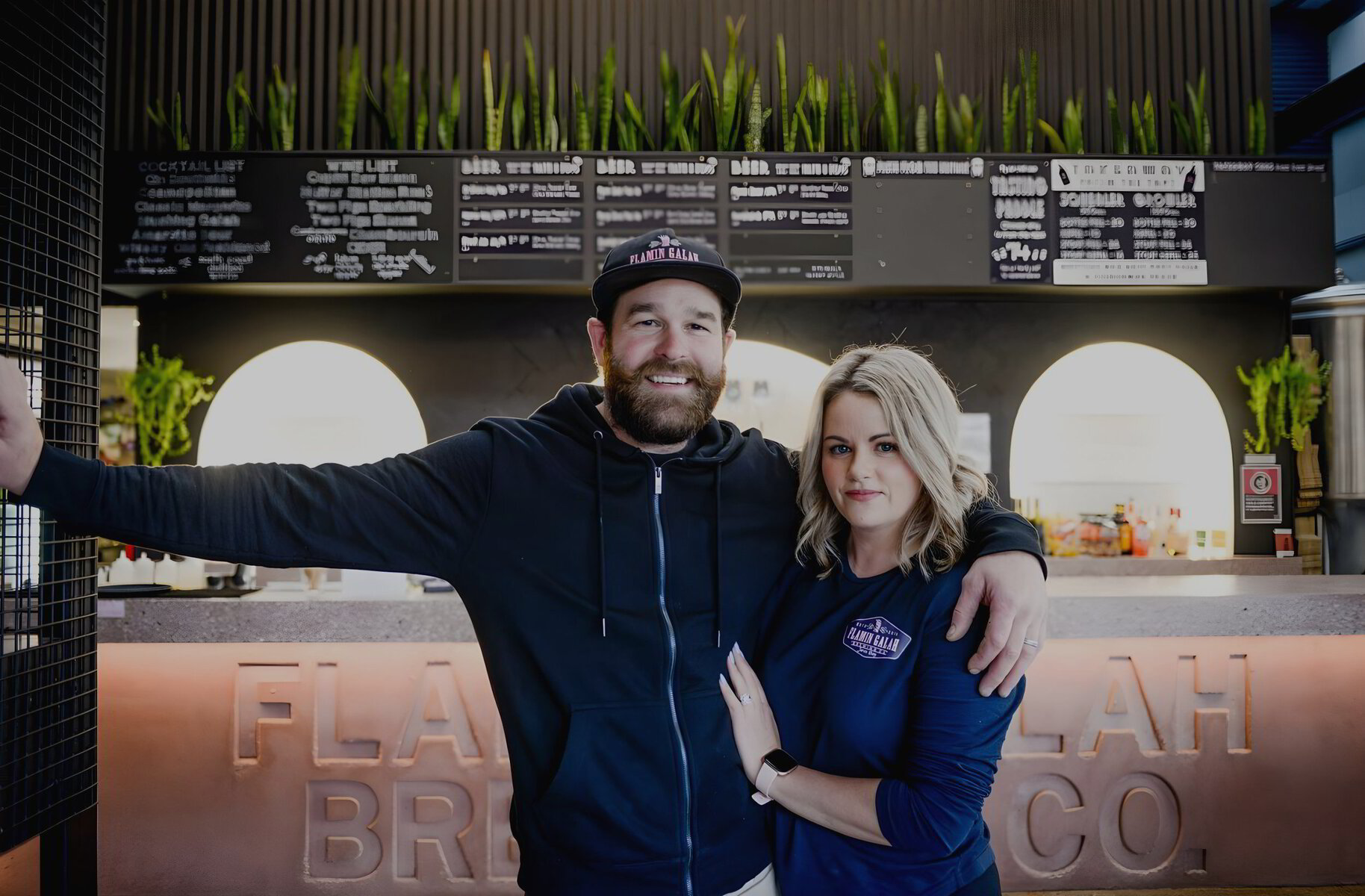
Sam and Claire Newson are the owners and founders of Flamin Galah Brewing Co. Picture: Supplied
Glen Brasington, CEO of Hawke’s Brewing Co., pointed out the rising costs of goods as another factor to consider.
“In the last 12 to 18 months we’ve seen a significant increase in the cost of base ingredients like malt, yeast and hops,” he noted.
“Delivery and storage costs have gone up too, so you really need to understand your pricing and margins.”
If you build it, they will come
In recent years, many craft breweries have shifted their focus away from the wholesale market in favour of a greater emphasis on hospitality offerings.
“Ten years ago, breweries were focused on simply being a brewery, which is a little bit like opening a restaurant and only zeroing in on the kitchen and not the front of house,” Matt Kirkegaard explained.
“But many are now investing a lot more into the customer experience and acting more like a small neighbourhood bar than just a brewery in an industrial space that serves beers.
“In a way, they have replaced the small local pub and are now part of the local community in a way that I don’t think that larger pub developments are anymore.”
In regional markets like Western Australia’s Margaret River, craft breweries have become a go-to destination for families and friends, with food, live music and even attractions like golf driving ranges.
View this post on Instagram
This shift has in turn led to an increased demand for craft breweries in the property market, with developers seeing craft breweries as a lucrative business opportunity and landlords seeking out brewers to fill vacancies.
“Once upon a time it was the coffee shop. Nowadays developers are asking, is there a craft brewery nearby?” said Mr Kirkegaard. “Many new developments are looking to attract a craft brewery as an anchor tenant because of the important role that they play in the streetscape.”
Local neighbourhood breweries also make economic sense.
Flamin Galah Brewing Co, which offers both a flagship brewpub in Jervis Bay and a taphouse in Chippendale, sells 95% of its product in-house.
View this post on Instagram
“There’s not a lot of money in wholesale at the moment since Covid, so we focus mainly on bums on seats because the mark-up of the schooner is much higher,” explained Sam Newson.
“The profit’s in the schooner.”
Location, location, location
Marrickville has been the logical home for a slew craft breweries, given its growing reputation (alongside the Sunshine Coast) as Australia’s craft beer capital.
In 2022, after four years in the contract brewing game, Hawke’s Brewing Co. opened The Bob Hawke Beer and Leisure Centre in the inner west Sydney suburb.
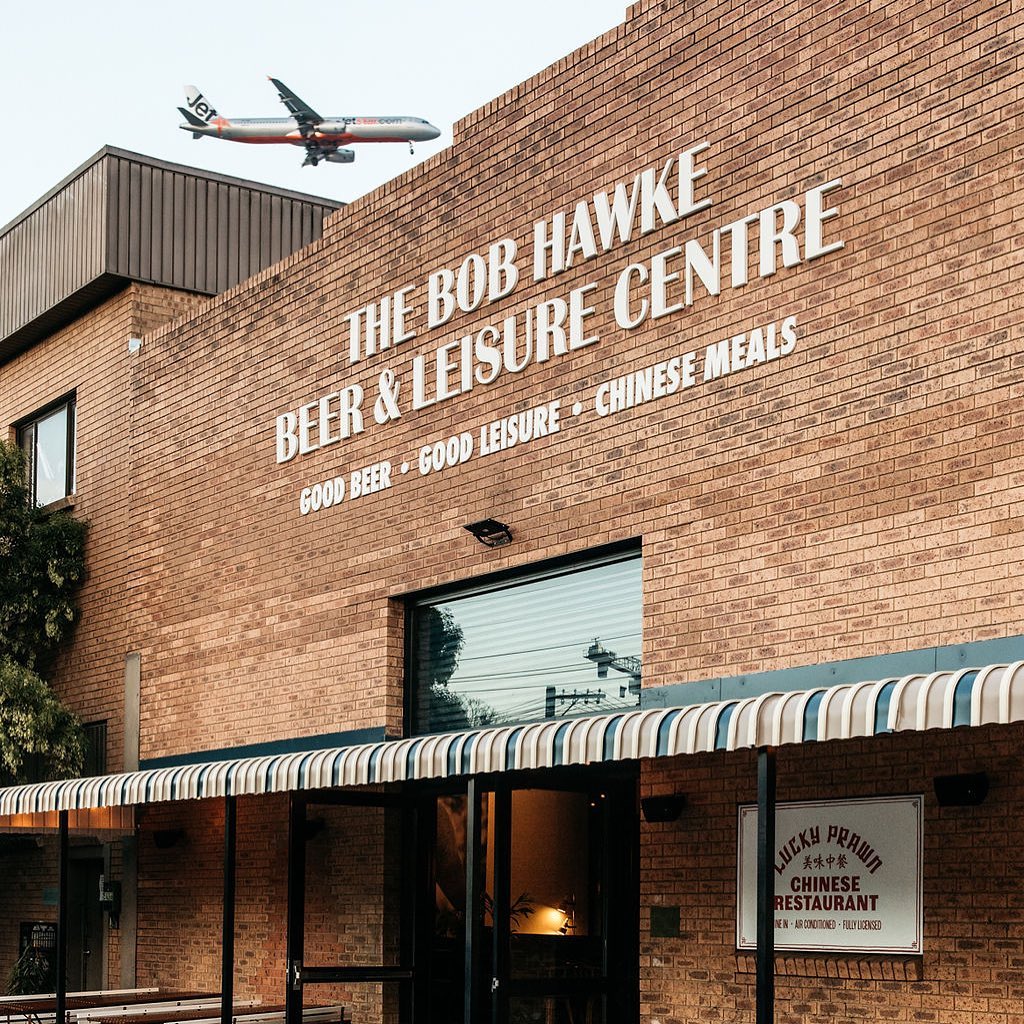
Marrickville in Sydney is home to the Bob Hawke beer and leisure centre, which opened in 2022. Picture: Facebook @hawkesbrewing
Dubbed an ‘elevated RSL’, the venue encompasses a commercial scale brewery, beer garden, and country-style Chinese restaurant, The Lucky Prawn.
CEO Glen Brasington called the move “a no brainer.”
“Marrickville already had a decent footprint of 12 or so venues, so people were already coming to the area to have brewery experiences,” he explained. “And you need a good commercial footprint to be successful.”
“Having said that, there are still plenty of successful breweries in Australia who are the only brewery in their town,” he added.
“Coastal Brewing up in Foster, for example – they do really well and they’re the only brewery within 250 kilometres.”
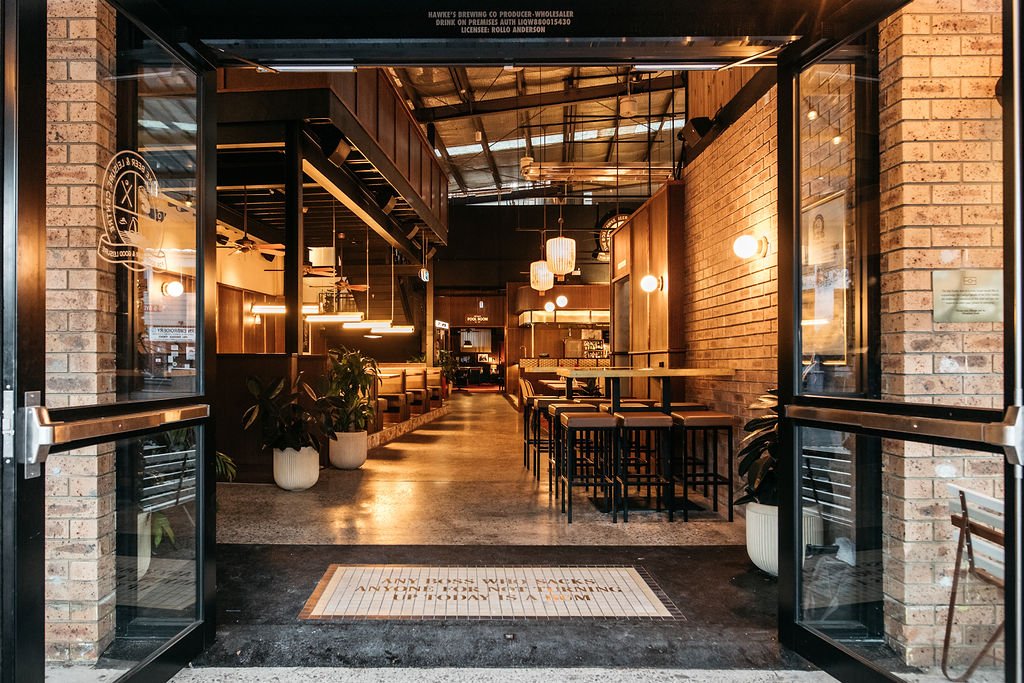
The Bob Hawke Beer and Leisure Centre includes a commercial scale brewery, beer garden, and country-style Chinese restaurant. Picture: Hawke’s Brewing Co.
Sam Newson echoed this: “If you’re looking to start a brewery, pick a small town that doesn’t have one and you’ll do extremely well.”
“I also think it’s important for a craft beer to be consumed maybe within an hour of where it’s brewed to be enjoyed properly,” he added.
“With such a saturated market, you only get one chance to sway someone to drink your beer.”
Branding is everything
What’s more important? A great beer or a great brand?
Matt Kirkegaard believes that while a quality product is extremely important, when it comes to craft beer, branding is everything.
“Quality isn’t necessarily what makes people pick a beer off the shelf or walk into a venue,” he said. “Quality can be built into a brand, but the brand has to be very strong in order to thrive in a competitive market.”
When it comes to canny branding, it doesn’t get much better than naming your company after a national icon like Bob Hawke.
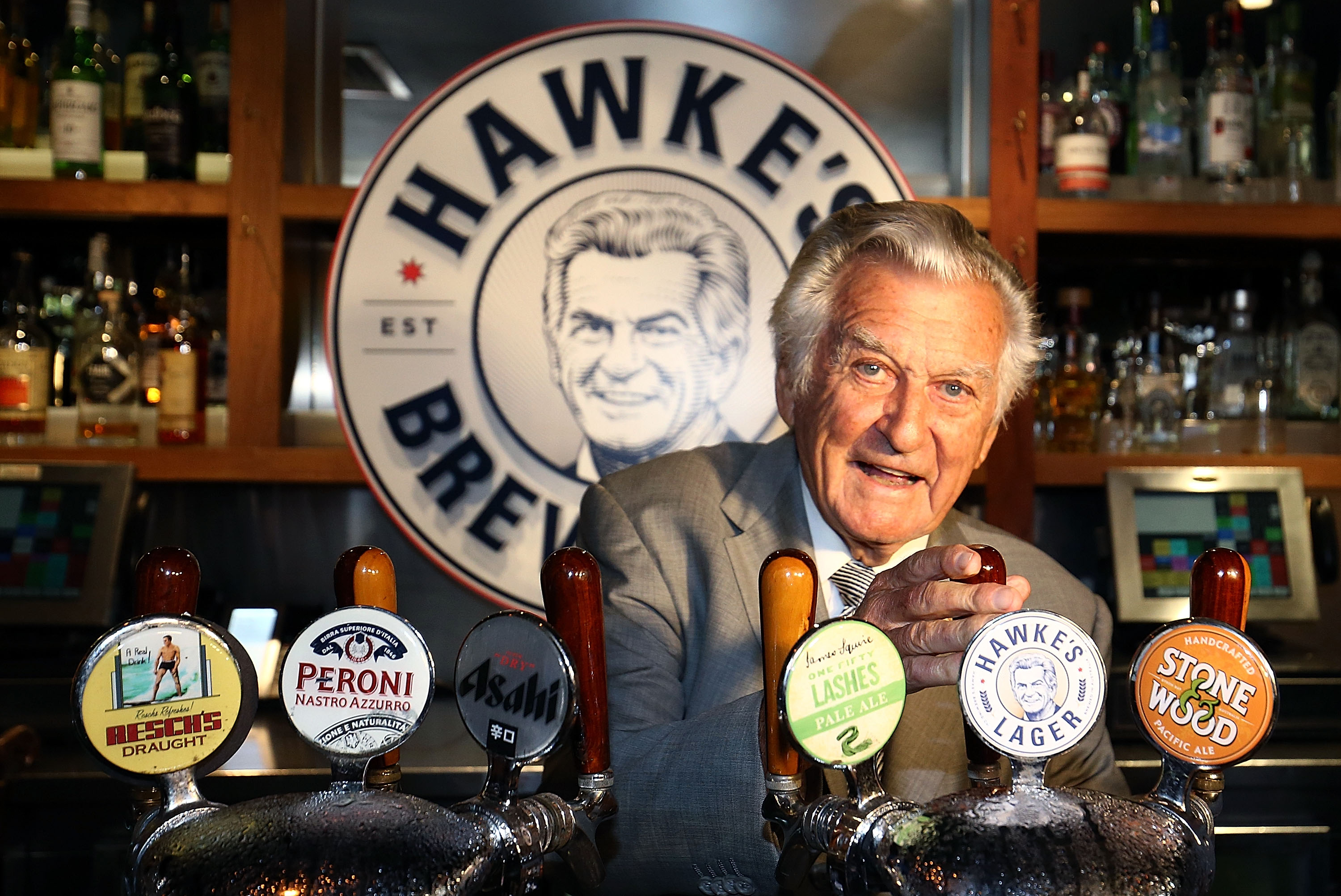
Former Prime Minister Bob Hawke agreed to lend his name to the beer and officially launch Hawke’s Brewing Co on the condition that a share of profits would go to Landcare Australia. Picture: Mark Metcalfe/Getty Images
In 2017, Hawke’s Brewing Co. founders Nathan Lennon and David Gibson asked the former Prime Minister if he would help them launch the company. Bob agreed, with his only condition being that his royalty share be donated to Landcare Australia, the environmental charity he established in 1989.
“I think the strength of having Bob Hawke as our founder is that every part of Australia feels like they own a little bit of Bob,” Glen Brasington said. “Whether it’s because he was born in Adelaide, went to university in Perth, or his political and his trade union career was in Melbourne, he has an enduring national relevance.”
Mr Brasington is banking on the strength of the brand – and quality of product – to grow the Sydney company into a thriving national drop.
“A lot of craft breweries have impressive local engagement and are great at catering to their community, but they have a lot of trouble scaling beyond that,” he said.
“For example, people in Perth just aren’t going to drink Bondi Lager. If you want to grow, you’ve got to think nationally.”
Craft breweries on the market
If you’ve always dreamed of running your own brewery, there are some exciting opportunities ready to go.
Devil’s Hollow, Dubbo, NSW
If life on the Western Plains is more your vibe, Dubbo’s world class craft brewery Devil’s Hollow is up for grabs.
Opened in 2019, the town’s popular brewpub attracts locals and tourists all year round.
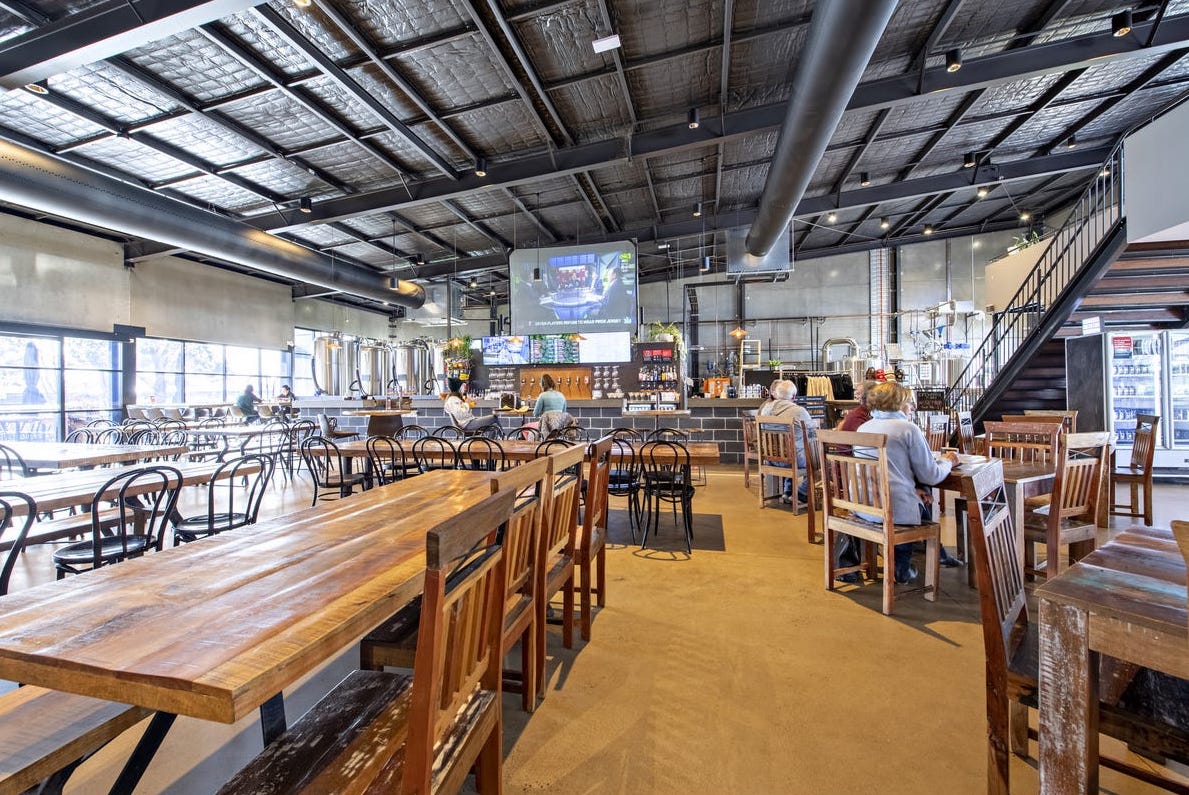
The establishment holds a full hotel liquor license and operates as a single bar with a spacious main bar area and a large beer garden for outdoor seating.
Along with the state-of-the-art beer brewery, the property also has a full commercial kitchen and bistro area, making it capable of catering to a large number of guests for events and functions.
Flat Rock Brew Cafe, Sydney, NSW
The Flat Rock Brew Café is a local institution in the lower north shore suburb of Naremburn, gifting residents with top notch, locally brewed beer.
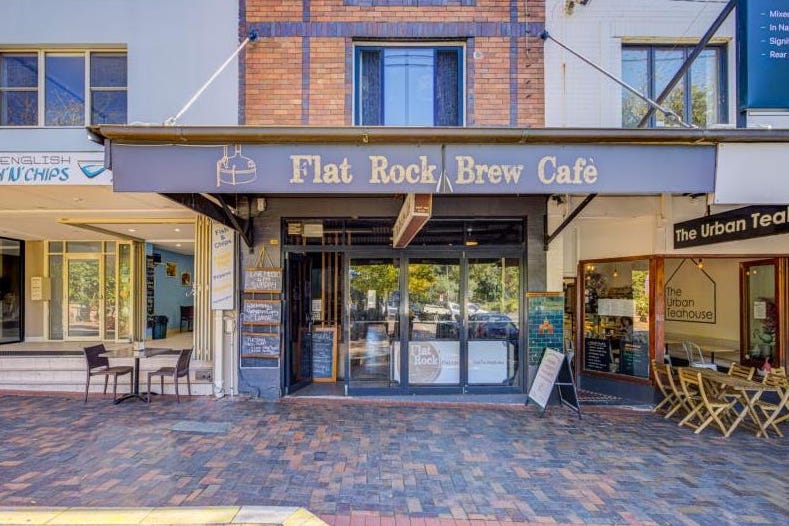
A microbrewery has leased the space for the past ten years. Picture: realcommercial.com.au/buy
While the business itself is not for sale, the property is, offering motivated investors an exciting freehold opportunity.
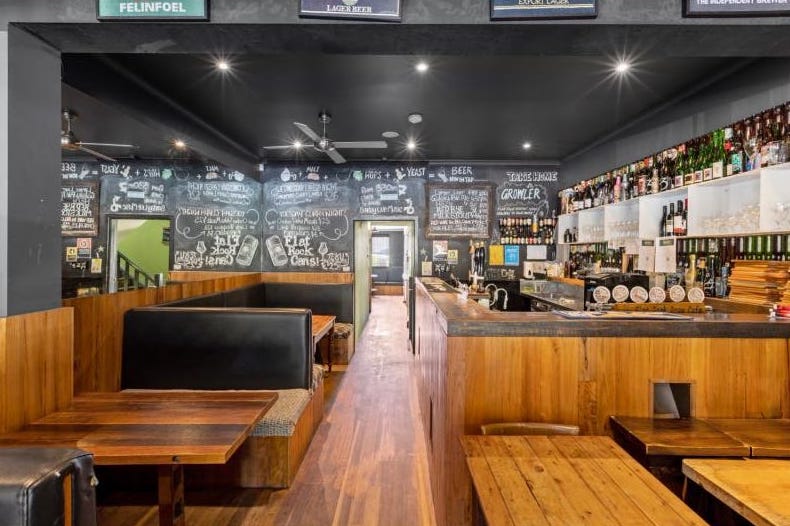
While you won’t own the business, you’ll have plenty of craft beer available on tap. Picture: realcommercial.com.au/buy
Running successfully for the last decade, the celebrated brew house recently signed a new five-year lease in November 2022, which will secure the buyer a guaranteed revenue stream.
Styx Brewery, Newcastle, NSW (sold)
A lucky investor has just snapped up Styx Brewery – a well-established brewery operation in the form of a stylish open plan warehouse offering multiple office spaces, storage rooms, and outdoor area and residential living options.
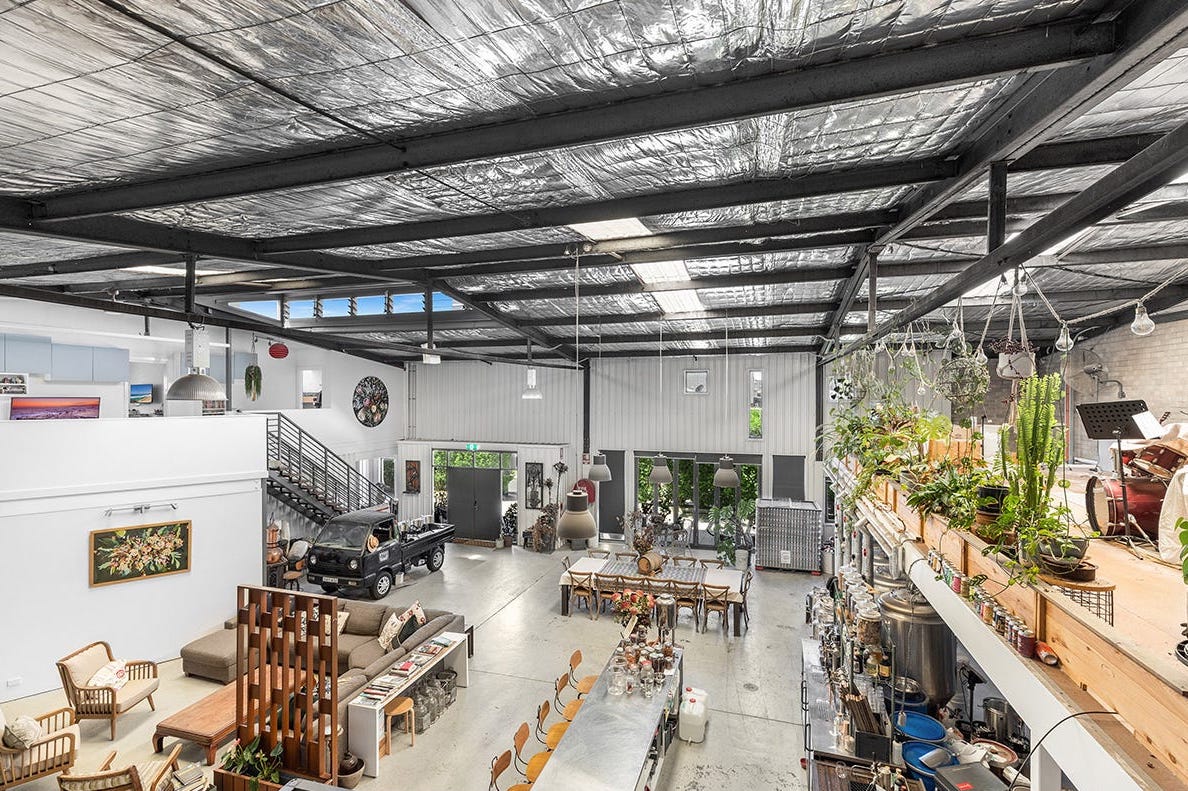
Recently sold, the property currently operates Styx Brewery. Picture: realcommercial.com.au/sold
Located in the Newcastle CBD-fringe locale of Carrington, which has recently undergone a transformation, morphing into one of the city’s new trendy destinations for cafes, restaurants and bars.
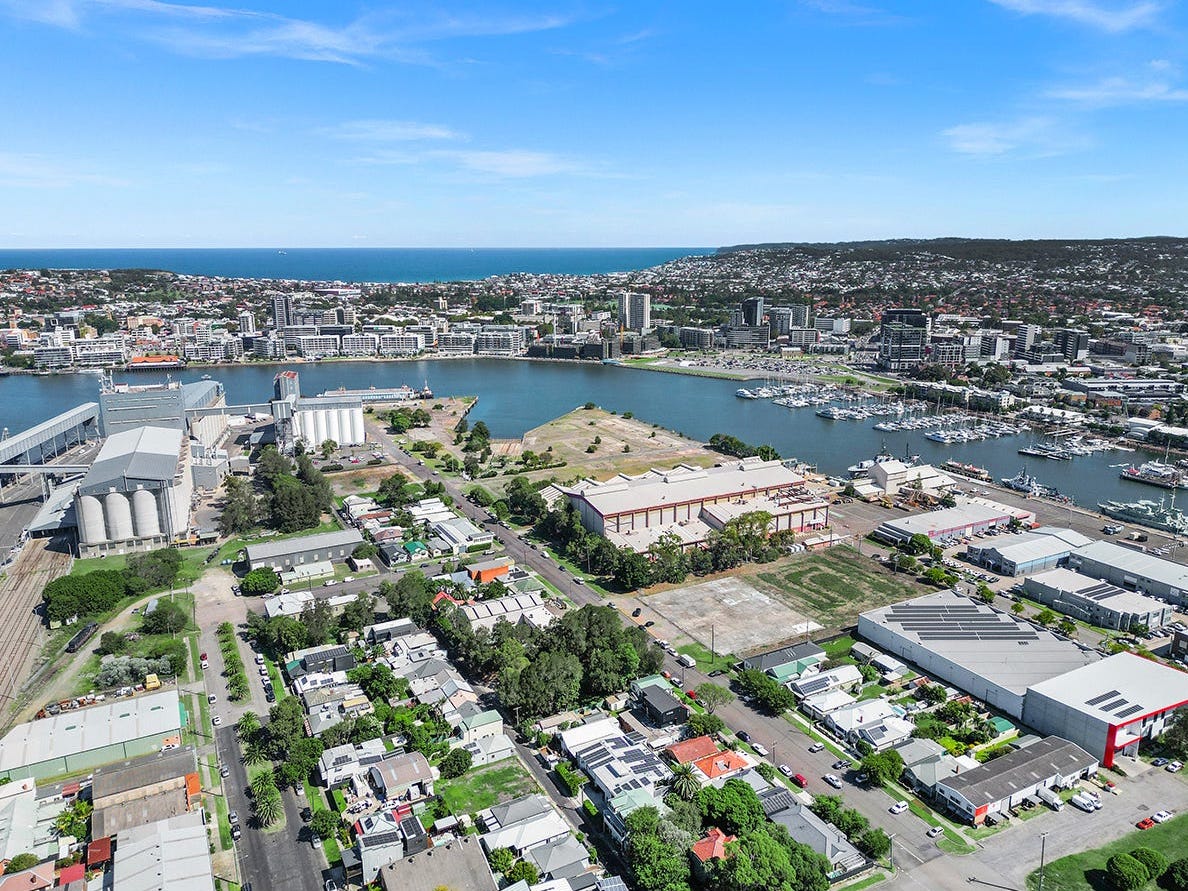
Located in the heart of Carrington, a trendy inner-city Newcastle suburb. Picture: realcommercial.com.au/sold
The property also had an existing DA approval for food manufacturing and an associated dwelling.

